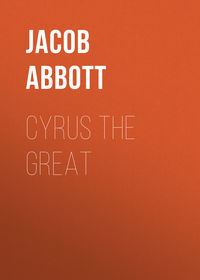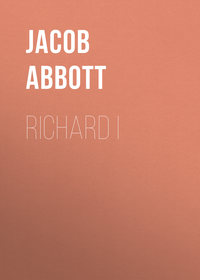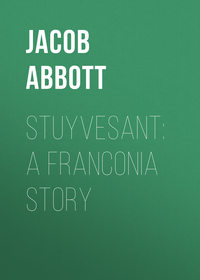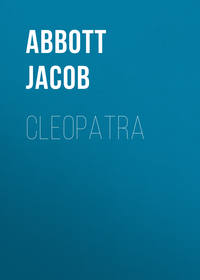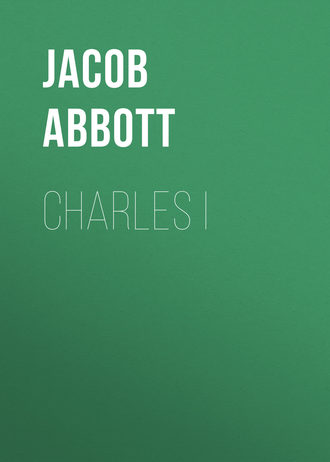
Charles I
Laud's contention with the judges.
The judges in one of the counties, at a regular court held by them, once passed an order forbidding certain revels and carousals connected with the Church service, on account of the immoralities and disorders, as they alleged, to which they gave rise; and they ordered that public notice to this effect should be given by the bishop. The archbishop, Laud, considered this an interference on the part of the civil magistrates, with the powers and prerogatives of the Church. He had the judges brought before the council, and censured there; and they were required by the council to revoke their order at the next court. The judges did so, but in such a way as to show that they did it simply in obedience to the command of the king's council. The people, or at least all of them who were inclined to Puritan views, sided with the judges, and were more strict in abstaining from all such amusements on Sunday than ever. This, of course, made those who were on the side of Laud more determined to promote these gayeties. Thus, as neither party pursued, in the least degree, a generous or conciliatory course toward the other, the difference between them widened more and more. The people of the country were fast becoming either bigoted High-Churchmen or fanatical Puritans.
Severe punishments for expression of opinion.
Laud employed the power of the Star Chamber a great deal in the accomplishment of his purpose of enforcing entire submission to the ecclesiastical authority of the Church. He even had persons sometimes punished very severely for words of disrespect, or for writings in which they censured what they considered the tyranny under which they suffered. This severe punishment for the mere expression of opinion only served to fix the opinion more firmly, and disseminate it more widely. Sometimes men would glory in their sufferings for this cause, and bid the authorities defiance.
Case of Lilburne.
His indomitable spirit.
One man, for instance, named Lilburne, was brought before the Star Chamber, charged with publishing seditious pamphlets. Now, in all ordinary courts of justice, no man is called upon to say any thing against himself. Unless his crime can be proved by the testimony of others, it can not be proved at all. But in the Star Chamber, whoever was brought to trial had to take an oath at first that he would answer all questions asked, even if they tended to criminate himself. When they proposed this oath to Lilburne, he refused to take it. They decided that this was contempt of court, and sentenced him to be whipped, put in the pillory, and imprisoned. While they were whipping him, he spent the time in making a speech to the spectators against the tyranny of bishops, referring to Laud, whom he considered as the author of these proceedings. He continued to do the same while in the pillory. As he passed along, too, he distributed copies of the pamphlets which he was prosecuted for writing. The Star Chamber, hearing that he was haranguing the mob, ordered him to be gagged. This did not subdue him. He began to stamp with his foot and gesticulate; thus continuing to express his indomitable spirit of hostility to the tyranny which he opposed. This single case would be of no great consequence alone, but it was not alone. The attempt to put Lilburne down was a symbol of the experiment of coercion which Charles in the state, and Laud in the Church, were trying upon the whole nation; it was a symbol both in respect to the means employed, and to the success attained by them.
The young lawyer's toast.
Ingenious plea.
One curious case is related, which turned out more fortunately than usual for the parties accused. Some young lawyers in London were drinking at an evening entertainment, and among other toasts they drank confusion to the Archbishop of Canterbury. One of the waiters, who heard them, mentioned the circumstance, and they were brought before the Star Chamber. Before their trial came on, they applied to a certain nobleman to know what they should do. "Where was the waiter," asked the nobleman, "when you drank the toast?" "At the door." "Oh! very well, then," said he; "tell the court that he only heard a part of the toast, as he was going out; and that the words really were, 'Confusion to the Archbishop of Canterbury's enemies.'" By this ingenious plea, and by means of a great appearance of humility and deference in the presence of the archbishop, the lawyers escaped with a reprimand.
Laud's designs upon the Scotch Church.
Laud was not content with establishing and confirming throughout all England the authority of the Church, but attempted to extend the same system to Scotland. When King Charles went to Scotland to be crowned, he took Laud with him. He was pleased with Laud's endeavors to enlarge and confirm the powers of the Church, and wished to aid him in the work. There were two reasons for this. One was, that the same class of men, the Puritans, were the natural enemies of both, so that the king and the archbishop were drawn together by having one common foe. Then, as the places in the Church were not hereditary, but were filled by appointments from the king and the great nobles, whatever power the Church could get into its hands could be employed by the king to strengthen his own authority, and keep his subjects in subjection.
Motives of Laud and the king.
We must not, however, censure the king and his advisers too strongly for this plan. They doubtless were ambitious; they loved power; they wished to bear sway, unresisted and unquestioned, over the whole realm. But then the king probably thought that the exercise of such a government was necessary for the order and prosperity of the realm, besides being his inherent and indefeasible right. Good and bad motives were doubtless mingled here, as in all human action; but then the king was, in the main, doing what he supposed it was his duty to do. In proposing, therefore, to build up the Church in Scotland, and to make it conform to the English Church in its rites and ceremonies, he and Laud doubtless supposed that they were going greatly to improve the government of the sister kingdom.
The Liturgy.
There was in those days, as now, in the English Church, a certain prescribed course of prayers, and psalms, and Scripture lessons, for each day, to be read from a book by the minister. This was called the Liturgy. The Puritans did not like a Liturgy. It tied men up, and did not leave the individual mind of the preacher at liberty to range freely, as they wished it to do, in conducting the devotional services. It was on this very account that the friends of strong government did like it. They wished to curtail this liberty, which, however, they called license, and which they thought made mischief. In extemporaneous prayers, it is often easy to see that the speaker is aiming much more directly at producing a salutary effect on the minds of his hearers than at simply presenting petitions to the Supreme Being. But, notwithstanding this evil, the existence of which no candid man can deny, the enemies of forms, who are generally friends of the largest liberty, think it best to leave the clergyman free. The friends of forms, however, prefer forms on this very account. They like what they consider the wholesome and salutary restraints which they impose.
The Scotch.
Laud prepares them a Liturgy.
Now there has always been a great spirit of freedom in the Scottish mind. That people have ever been unwilling to submit to coercion or restraints. There is probably no race of men on earth that would make worse slaves than the Scotch. Their sturdy independence and determination to be free could never be subdued. In the days of Charles they were particularly fond of freely exercising their own minds, and of speaking freely to others on the subject of religion. They thought for themselves, sometimes right and sometimes wrong; but they would think, and they would express their thoughts; and their being thus unaccustomed, in one particular, to submit to restraints, rendered them more difficult to be governed in others. Laud thought, consequently, that they, particularly, needed a Liturgy. He prepared one for them. It was varied somewhat from the English Liturgy, though it was substantially the same. The king proclaimed it, and required the bishops to see that it was employed in all the churches in Scotland.
Times of tumult.
Preaching to an empty church.
The day for introducing the Liturgy was the signal for riots all over the kingdom. In the principal church in Edinburgh they called out "A pope! A pope!" when the clergyman came in with his book and his pontifical robes. The bishop ascended the pulpit to address the people to appease them, and a stool came flying through the air at his head. The police then expelled the congregation, and the clergyman went through with the service of the Liturgy in the empty church, the congregation outside, in great tumult, accompanying the exercises with cries of disapprobation and resentment, and with volleys of stones against the doors and windows.
The Scotch rebel.
The Scotch sent a sort of embassador to London to represent to the king that the hostility to the Liturgy was so universal and so strong that it could not be enforced. But the king and his council had the same conscientious scruples about giving up in a contest with subjects, that a teacher or a parent, in our day, would feel in the case of resistance from children or scholars. The king sent down a proclamation that the observance of the Liturgy must be insisted on. The Scotch prepared to resist. They sent delegates to Edinburgh, and organized a sort of government. They raised armies. They took possession of the king's castles. They made a solemn covenant, binding themselves to insist on religious freedom. In a word, all Scotland was in rebellion.
The king's fool.
It was the custom in those days to have, connected with the court, some half-witted person, who used to be fantastically dressed, and to have great liberty of speech, and whose province was to amuse the courtiers. He was called the king's jester, or, more commonly, the fool. The name of King Charles's fool was Archy. After this rebellion broke out, and all England was aghast at the extent of the mischief which Laud's Liturgy had done, the fool, seeing the archbishop go by one day, called out to him, "My lord! who is the fool now!" The archbishop, as if to leave no possible doubt in respect to the proper answer to the question, had poor Archy tried and punished. His sentence was to have his coat pulled up over his head, and to be dismissed from the king's service. If Laud had let the affair pass, it would have ended with a laugh in the street; but by resenting it, he gave it notoriety, caused it to be recorded, and has perpetuated the memory of the jest to all future times. He ought to have joined in the laugh, and rewarded Archy on the spot for so good a witticism.
A general assembly called in Scotland.
The Scotch, besides organizing a sort of civil government, took measures for summoning a general assembly of their Church. This assembly met at Glasgow. The nobility and gentry flocked to Glasgow at the time of the meeting, to encourage and sustain the assembly, and to manifest their interest in the proceedings. The assembly very deliberately went to work, and, not content with taking a stand against the Liturgy which Charles had imposed, they abolished the fabric of Episcopacy – that is, the government of bishops – altogether. Thus Laud's attempt to perfect and confirm the system resulted in expelling it completely from the kingdom. It has never held up its head in Scotland since. They established Presbyterianism in its place, which is a sort of republican system, the pastors being all officially equal to each other, though banded together under a common government administered by themselves.
The king's expedition to the north.
The king was determined to put down this rebellion at all hazards. He had made such good use of the various irregular modes of raising money which have been already described, and had been so economical in the use of it, that he had now quite a sum of money in his treasury; and had it not been for the attempt to enforce the unfortunate Liturgy upon the people of Scotland, he might, perhaps, have gone on reigning without a Parliament to the end of his days. He had now about two hundred thousand pounds, by means of which, together with what he could borrow, he hoped to make one single demonstration of force which would bring the rebellion to an end. He raised an army and equipped a fleet. He issued a proclamation summoning all the peers of the realm to attend him. He moved with this great concourse from London toward the north, the whole country looking on as spectators to behold the progress of this great expedition, by which their monarch was going to attempt to subdue again his other kingdom.
The army at York.
The oath.
Charles advanced to the city of York, the great city of the north of England. Here he paused and established his court, with all possible pomp and parade. His design was to impress the Scots with such an idea of the greatness of the power which was coming to overwhelm them as to cause them to submit at once. But all this show was very hollow and delusive. The army felt a greater sympathy with the Scots than they did with the king. The complaints against Charles's government were pretty much the same in both countries. A great many Scotchmen came to York while the king was there, and the people from all the country round flocked thither too, drawn by the gay spectacles connected with the presence of such a court and army. The Scotchmen disseminated their complaints thus among the English people, and finally the king and his council, finding indications of so extensive a disaffection, had a form of an oath prepared, which they required all the principal persons to take, acknowledging allegiance to Charles, and denying that they had any intelligence or correspondence with the enemy. The Scotchmen all took the oath very readily, though some of the English refused.
The king's march.
At any rate, the state of things was not such as to intimidate the Scotch, and lead them, as the king had hoped, to sue for peace. So he concluded to move on toward the borders. He went to Newcastle, and thence to Berwick. From Berwick he moved along the banks of the Tweed, which here forms the boundary between the two kingdoms, and, finding a suitable place for such a purpose, the king had his royal tent pitched, and his army encamped around him.
Artifice of the Scots.
Now, as King Charles had undertaken to subdue the Scots by a show of force, it seems they concluded to defend themselves by a show too, though theirs was a cheaper and more simple contrivance than his. They advanced with about three thousand men to a place distant perhaps seven miles from the English camp. The king sent an army of five thousand men to attack them. The Scotch, in the mean time, collected great herds of cattle from all the country around, as the historians say, and arranged them behind their little army in such a way as to make the whole appear a vast body of soldiers. A troop of horsemen, who were the advanced part of the English army, came in sight of this formidable host first, and, finding their numbers so much greater than they had anticipated, they fell back, and ordered the artillery and foot-soldiers who were coming up to retreat, and all together came back to the encampment. There were two or three military enterprises of similar character, in which nothing was done but to encourage the Scotch and dishearten the English. In fact, neither officers, soldiers, nor king wished to proceed to extremities. The officers and soldiers did not wish to fight the Scotch, and the king, knowing the state of his army, did not really dare to do it.
The compromise.
The army disbanded.
The king's difficulties.
He thinks of a Parliament.
Finally, all the king's council advised him to give up the pretended contest, and to settle the difficulty by a compromise. Accordingly, in June, negotiations were commenced, and before the end of the month articles were signed. The king probably made the best terms he could, but it was universally considered that the Scots gained the victory. The king disbanded his army, and returned to London. The Scotch leaders went back to Edinburgh. Soon after this the Parliament and the General Assembly of the Church convened, and these bodies took the whole management of the realm into their own hands. They sent commissioners to London to see and confer with the king, and these commissioners seemed almost to assume the character of embassadors from a foreign state. These negotiations, and the course which affairs were taking in Scotland, soon led to new difficulties. The king found that he was losing his kingdom of Scotland altogether. It seemed, however, as if there was nothing that he could do to regain it. His reserved funds were gone, and his credit was exhausted. There was no resource left but to call a Parliament and ask for supplies. He might have known, however, that this would be useless, for there was so strong a fellow-feeling with the Scotch in their alleged grievances among the people of England, that he could not reasonably expect any response from the latter, in whatever way he might appeal to them.
Chapter VII.
The Earl of Strafford
1621-1640The Earl of Strafford.
His early life.
During the time that the king had been engaged in the attempt to govern England without Parliaments, he had, besides Laud, a very efficient co-operator, known in English history by the name of the Earl of Strafford. This title of Earl of Strafford was conferred upon him by the king as a reward for his services. His father's name was Wentworth. He was born in London, and the Christian name given to him was Thomas. He was educated at the University of Cambridge, and was much distinguished for his talents and his personal accomplishments. After finishing his education, he traveled for some time on the Continent, visiting foreign cities and courts, and studying the languages, manners, and customs of other nations. He returned at length to England. He was made a knight. His father died when he was about twenty-one, and left him a large fortune. He was about seven years older than King Charles, so that all these circumstances took place before the commencement of Charles's reign. For many years after this he was very extensively known in England as a gentleman of large fortune and great abilities, by the name of Sir Thomas Wentworth.
Strafford's course in Parliament.
His opposition to the king.
Sir Thomas Wentworth was a member of Parliament in those days, and in the contests between the king and the Parliament he took the side of Parliament. Charles used to maintain that his power alone was hereditary and sovereign; that the Parliament was his council; and that they had no powers or privileges except what he himself or his ancestors had granted and allowed them. Wentworth took very strong ground against this. He urged Parliament to maintain that their rights and privileges were inherent and hereditary as well as those of the king; that such powers as they possessed were their own, and were entirely independent of royal grant or permission; and that the king could no more encroach upon the privileges of Parliament, than Parliament upon the prerogatives of the king. This was in the beginning of the difficulties between the king and the Commons.
The leaders removed.
The opposition still continues.
It will, perhaps, be recollected by the reader, that one of the plans which Charles adopted to weaken the opposition to him in Parliament was by appointing six of the leaders of this opposition to the office of sheriff in their several counties. And as the general theory of all monarchies is that the subjects are bound to obey and serve the king, these men were obliged to leave their seats in Parliament and go home, to serve as sheriffs. Charles and his council supposed that the rest would be more quiet and submissive when the leaders of the party opposed to him were taken away. But the effect was the reverse. The Commons were incensed at such a mode of interfering with their action, and became more hostile to the royal power than ever.
Wentworth imprisoned.
Wentworth himself, too, was made more determined in his opposition by this treatment. A short time after this, the king's plan of a forced loan was adopted, which has already been described; that is, a sum of money was assessed in the manner of a tax upon all the people of the kingdom, and each man was required to lend his proportion to the government. The king admitted that he had no right to make people give money without the action of Parliament, but claimed the right to require them to lend it. As Sir Thomas Wentworth was a man of large fortune, his share of the loan was considerable. He absolutely refused to pay it. The king then brought him before a court which was entirely under royal control, and he was condemned to be imprisoned. Knowing, however, that this claim on the part of the king was very doubtful, they mitigated the punishment by allowing him first a range of two miles around his place of confinement, and afterward they released him entirely.
His return to Parliament.
He was chosen a member of Parliament again, and he returned to his seat more powerful and influential than ever. Buckingham, who had been his greatest enemy, was now dead, and the king, finding that he had great abilities and a spirit that would not yield to intimidation or force, concluded to try kindness and favors.
Wentworth is courted.
He goes over to the king.
In fact, there are two different modes by which sovereigns in all ages and countries endeavor to neutralize the opposition of popular leaders. One is by intimidating them with threats and punishments, and the other buying them off with appointments and honors. Some of the king's high officers of state began to cultivate the acquaintance of Wentworth, and to pay him attentions and civilities. He could not but feel gratified with these indications of their regard. They complimented his talents and his powers, and represented to him that such abilities ought to be employed in the service of the state. Finally, the king conferred upon him the title of baron. Common gratitude for these marks of distinction and honor held him back from any violent opposition to the king. His enemies said he was bought off by honors and rewards. No doubt he was ambitious, and, like all other politicians, his supreme motive was love of consideration and honor. This was doubtless his motive in what he had done in behalf of the Parliament. But all that he could do as a popular leader in Parliament was to acquire a general ascendency over men's minds, and make himself a subject of fame and honor. All places of real authority were exclusively under the king's control, and he could only rise to such stations through the sovereign's favor. In a word, he could acquire only influence as a leader in Parliament, while the king could give him power.
The king appoints Wentworth to office.
Kings can exercise, accordingly, a great control over the minds of legislators by offering them office; and King Charles, after finding that his first advances to Wentworth were favorably received, appointed him one of his Privy Council. Wentworth accepted the office. His former friends considered that in doing this he was deserting them, and betraying the cause which he had at first espoused and defended. The country at large were much displeased with him, finding that he had forsaken their cause, and placed himself in a position to act against them.
Wentworth is appointed President of the North.
Persons who change sides in politics or in religion are very apt to go from one extreme to another. Their former friends revile them, and they, in retaliation, act more and more energetically against them. It was so with Strafford. He gradually engaged more and more fully and earnestly in upholding the king. Finally, the king appointed him to a very high station, called the Presidency of the North. His office was to govern the whole north of England – of course, under the direction of the king and council. There were four counties under his jurisdiction, and the king gave him a commission which clothed him with enormous powers – powers greater, as all the people thought, than the king had any right to bestow.



